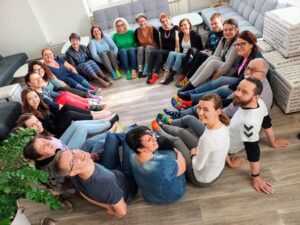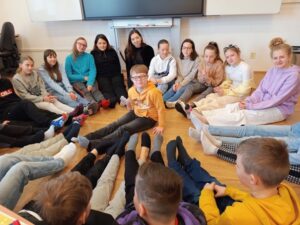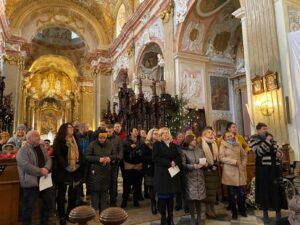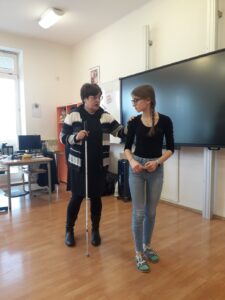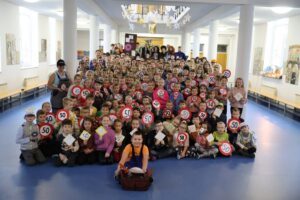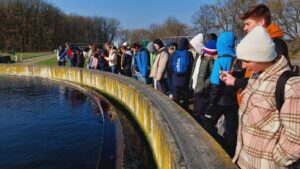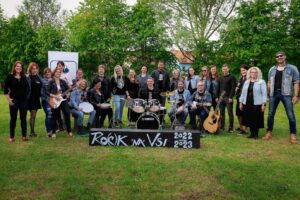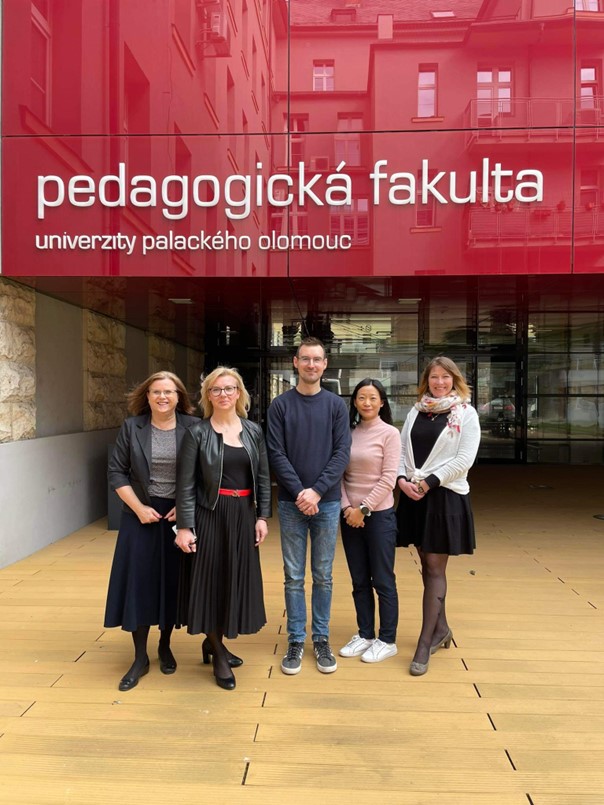
03 apr Palacký University – Czech Republic
The ACC Team from Palacký University in Olomouc
Alena Jůvová
Alena’s research expertise lies in enhancing the soft skills of educators and advancing teacher training methodologies. Her scholarly pursuits encompass vital competencies for teachers and educators, 21st-century skills, social pedagogy, and environmental education. At the Institute of Education and Social Studies within the Faculty of Education at Palacký University, Alena is a guarantor and a teacher of courses covering communication science, educational theory, social education, environmental education, 21st-century skills in education, interdisciplinary educational theory, and leisure education. She actively engages in various related international projects. Additionally, she serves as an executive editor and article reviewer for the interdisciplinary research journal, E-Pedagogium. Alena is a member of the Czech Pedagogical Society and the Czech Association of Research. She has authored textbooks and co-authored monographs, alongside publishing numerous articles and essays focusing on social education, environmental education theory, and related topics.
Jitka Plischke
Having obtained a degree in German philology and History, as well as a PhDr. in Pedagogy and a Ph.D. in Pedagogy with a focus on bilingual education in Czech schools, she now serves as an Assistant Professor at the Institute of Education and Social Studies. In her role, she instructs students in various subjects including General Didactics, School Didactics, Multicultural and Intercultural Education, and German Language for Social Pedagogues. Her research pursuits revolve around teacher training methodologies, current educational challenges in the Czech Republic, and contemporary didactic themes. She particularly delves into the education of students with diverse mother tongues, often within historical contexts, and the intercultural dimensions of education. Furthermore, she actively contributes as a member of the scientific board and article reviewer for e-Pedagogium, an interdisciplinary pedagogical research journal. Additionally, she takes on the responsibility of coordinating Erasmus+ initiatives at the Institute of Education and Social Studies.
Ondřej Duda
Ondřej Duda holds the position of Assistant Professor in English Language Studies at the Institute of Foreign Languages within the Faculty of Education at Palacký University in Olomouc, the Czech Republic. His teaching portfolio includes courses on sociolinguistics, teaching methodology, and integrating ICT into education. His scholarly pursuits focus on enhancing the competencies of future English educators, leveraging ICT tools in pedagogy, and exploring language learning beyond traditional classroom settings. He has actively contributed to several ERASMUS+ projects, namely GuLL, LEEN, VOICES, IINTOS, WAVE-IT, ACC and PAX. Ondřej also serves as a member of the editorial board and article reviewer for the interdisciplinary research journal, E-Pedagogium. Additionally, he holds membership in the Czech Pedagogical Society.
Danping Peng
Danping Peng holds the position of Assistant Professor of Education within the Faculty of Education at Palacký University, the Czech Republic. Her primary research interests lie in school management and the continuous professional growth of educational leaders. With a broad international perspective, she has conducted educational research in various countries including China, Sweden, and the Czech Republic. Over the past years, she has engaged in extensive fieldwork focusing on school leaders and educators within the Czech educational landscape. Her professional background encompasses teaching university courses in subjects ranging from school management and pedagogical diagnostics to comparative education and soft skills development. Additionally, she plays a pivotal role as an Erasmus coordinator.
The ACC Team activities:
Our activities at the Faculty of Education at Palacký University.
Text by Jitka Plichke and Ondřej Duda
Citizenship, both in the sense of the objective, clearly defined content and scope of this concept, and above all in the sense of the subjective perception of the concept and the individual’s relationship to it, is one of the important and intensely perceived topics in the discipline of Intercultural Education taught by Jitka Plischke at the Institute of Pedagogy and Social Studies. This discipline is part of the curricula of future pedagogical staff, i.e. not only teachers, but also educators and social educators.
Based on many years of experience, let’s formulate some interesting findings, which can be seen as suggestions for Jitka’s further pedagogical activity:
- Students perceive the concept of citizenship in a rather narrow way, basically as political engagement, active participation in elections, knowledge of basic (civil) rights, involvement in local events (participation in voluntary actions).
- If we discuss the concept of citizenship in terms of the perception of one’s own identity, then citizenship is most often perceived in the context of the state (i.e. the Czech Republic) or local/regional (South Moravia, Ostrava, Wallachia, etc.). Only very rarely do students perceive their own citizenship in the context of European or world citizenship.
- Very significant findings are related to the students’ weakly perceived competence to grasp the concept of citizenship in their future pedagogical activities (i.e. to set appropriate teaching objectives, to define it as a curriculum and to choose appropriate teaching methods so that education is not only effective but also interesting for students).
Since Education of a Democratic Citizen is a compulsory part of the curriculum of basic education in the form of the so-called cross-curricular topic, it is certainly necessary to pay attention to the concept and work with it during the undergraduate preparation of future teachers. I therefore see ACC project as very useful and inspiring, and I look forward to the exchange of experiences.
The ACC Team activities:
Activities at partner school in Velehrad
Text by Andrea Olbertová and Ondřej Duda
Velehrad Elementary School, located in the Uherské Hradiště region, operates under a family-school model, drawing students from the villages of Velehrad, Modrá, and Salaš. Our core mission revolves around nurturing problem-solving skills, fostering individual self-esteem, and facilitating each student’s ability to shine. We emphasize respect for community, traditions, and the environment, encouraging our students to actively engage with their surroundings.
An integral part of our approach involves the School Parliament, where elected representatives collaborate with teachers and the mayor to organize activities that enhance village life, with a special focus on initiatives such as recycling. Our school is deeply committed to community cooperation and fostering active citizenship among our students, both locally and internationally, through partnerships with programs and institutions such as Palacký University of Olomouc.
Our curriculum is a collaborative effort involving teachers, students, parents, and community authorities. We host special project weeks throughout the school year, such as this year’s “Water” project, which integrated various subjects and included field trips to the Municipal Waste-Water Treatment Plant and hands-on activities in an environmental classroom, blending education with active citizenship and environmental stewardship.
We facilitate active citizenship through community meetings and events, such as workshops for parents and friends, fostering intergenerational interaction and student engagement in a community life. Inclusivity is a cornerstone of our ethos, as we actively involve students with disabilities in school life and celebrate events like Down Syndrome Day, which also serves as an opportunity to introduce concepts like Braille through interactive sessions led by blind educators. An example of an outcome would be that our students have printed pliers for Braille on 3D printer.
Participation in programs like One World underscores our commitment to global citizenship, as thousands of students annually attend screenings of documentaries addressing human rights issues worldwide. Additionally, we embrace cultural exchange, welcoming Ukrainian students into our school community and organizing activities to promote cross-cultural understanding. Our educators consistently implement activities that promote active citizenship, aiming to equip our students with practical skills essential for responsible citizenship within our country and the broader European Union.
Pictures of the school as well of some of the activities are available below (all pictures have been taken by the school staff):
